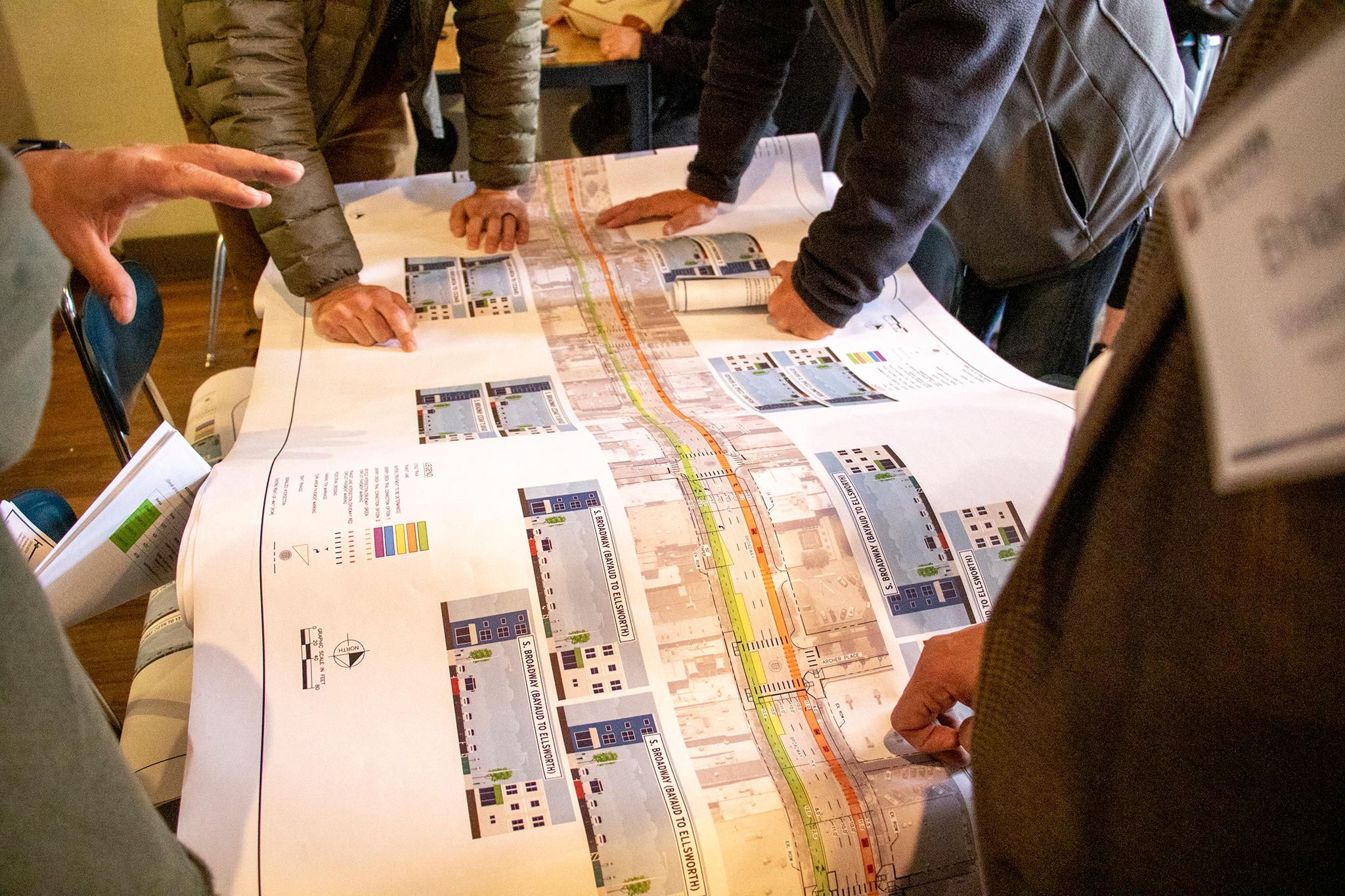And on the sixth year, the Broadway bike lane was built. Maybe.
It could be more than two years before people on two wheels have a safe way to traverse the city's primary north-south corridor, staffers said during publicly held "office hours" Wednesday. Construction may not begin until 2021.
Denver Public Works first installed the skeleton of a bike lane on South Broadway in 2015. It later matured into a five-block, two-way bikeway between Bayaud and Virginia avenues, disconnected from any other bike infrastructure.
The Hancock administration's long-term goal is an uninterrupted bikeway, physically buffered from traffic, between the Cherry Creek Trail and Center Avenue. At one point construction was slated to start as early as 2018.
Project manager Brittany Price would not speculate on how long construction would last once the streets department breaks ground.
"We know this is a complex project and a fairly long corridor," Price said.
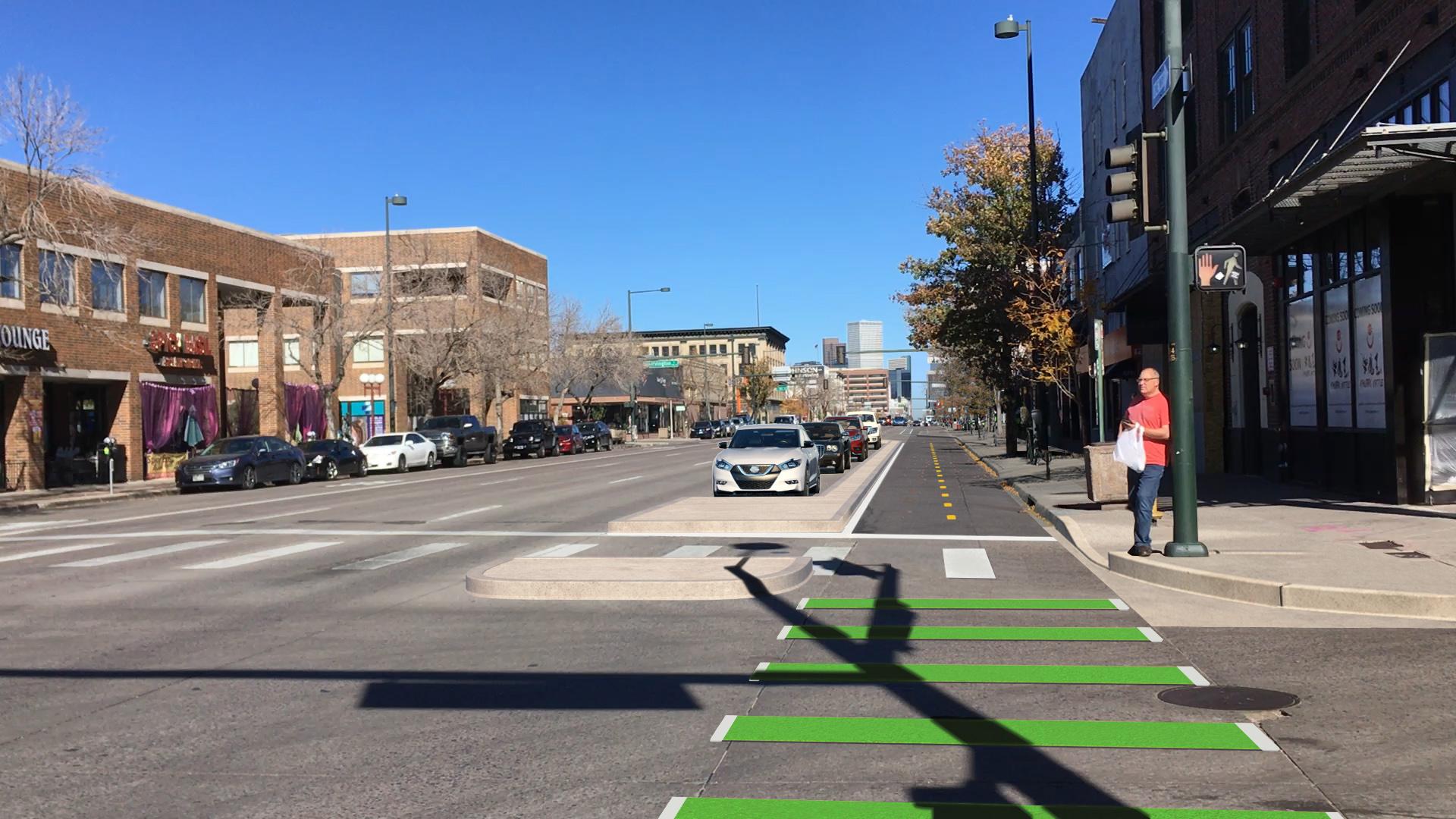
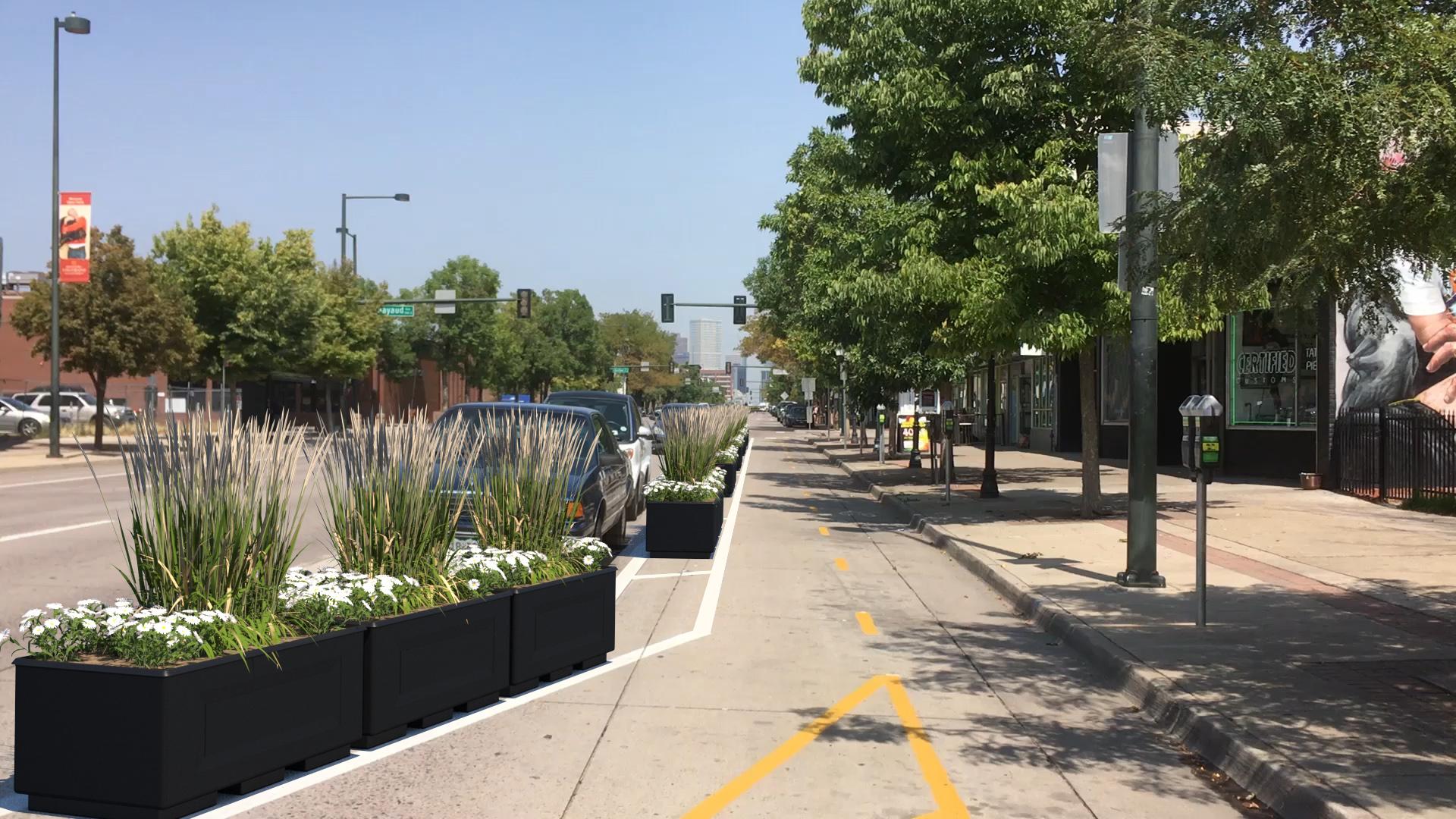
There's no longer debate on whether the bikeway will happen, Price said, just how it will happen.
Public Works' long, long-term goal is a bikeway between Civic Center Park and Exposition Avenue. That project remains unfunded.
Bureaucracy, naysayers and funding have slowed the project, which is about pedestrians and transit, too.
The bikeway is the most visible part of Public Works' plan, but the entire street is getting a makeover, adding complexity. Crews will rebuild 13 intersections with new traffic signals to curb driving speeds and make crosswalks safer -- and shorter -- for walkers and rollers. They'll enhance the 24/7 bus lane with markings and signals as well.
Crews will have to encroach on business owners' property during construction, Price said, and each case requires a separate contract. That red tape is partly to blame for the elastic timeline. So is a years-long reorganization of Public Works and $12 million in funding, which was not secured until 2017.
Business owners have also slowed the project over the years. Some have blamed the bikeway, which repurposed some parking spaces, for a decline in business. A city evaluation of sales tax receipts counters those claims.
Cabal Yarne owns the South Broadway boutique Decade. He bikes often and likes the project overall, but told Denverite he worries about fewer parking spots and construction affecting his business. Yarne estimated about 25 fewer people than normal come in daily, which he blames on existing street construction.
"I love that we're making that work for the city," Yarne said. "It's just about making sure that we're looking at all aspects of it. There's going to be controversy on all sides, but I think (the project team) is doing their best to hear them. I think they've done a fantastic job."
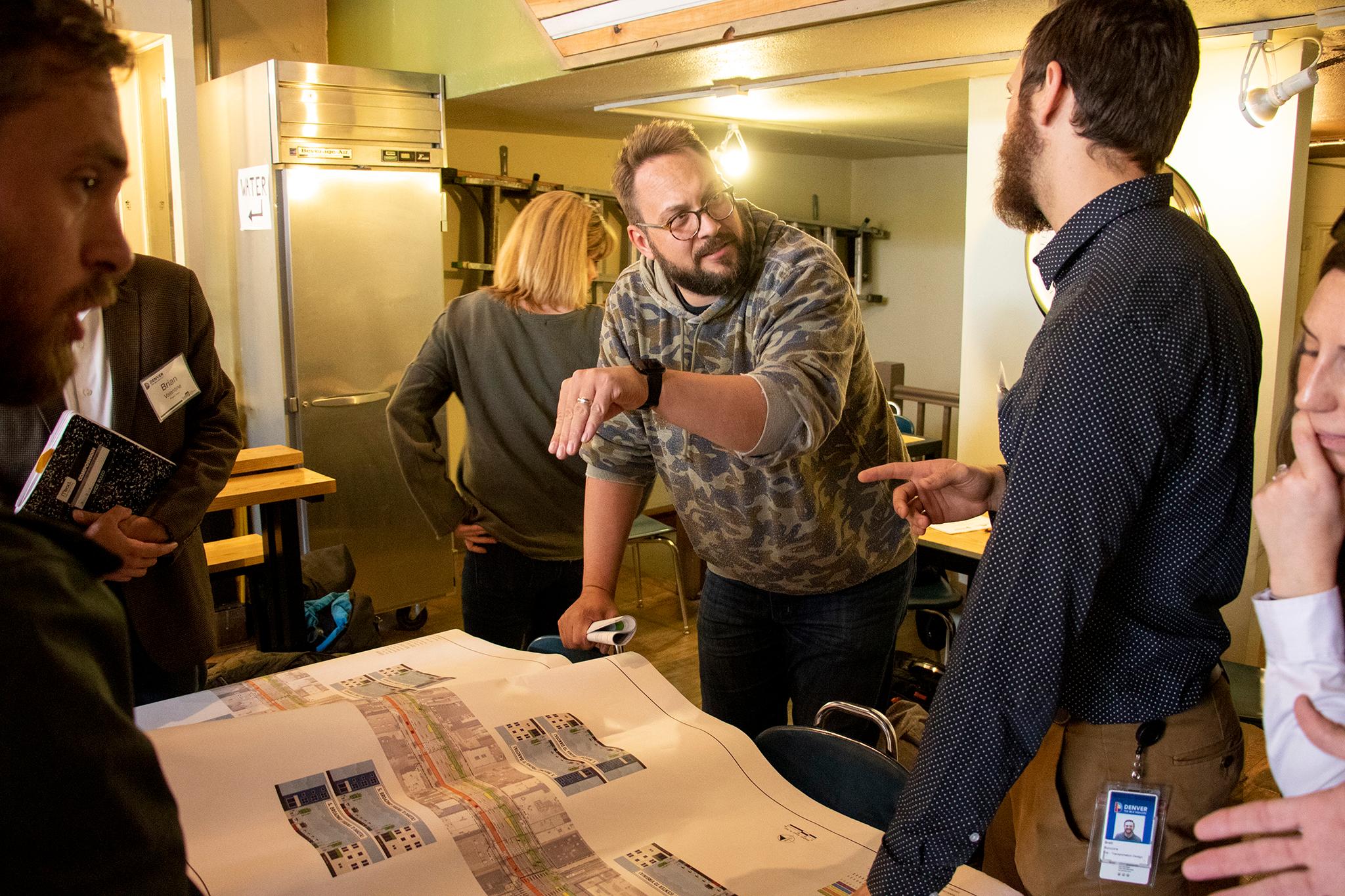
Maybe the street overhaul will mean more people biking and fewer drivers crashing into people and The Hornet.
The project's top goal is to create a street that everyone can safely use. Drivers have slowed down since the half-mile bikeway was installed, a city evaluation shows, but they still speed. They averaged 36 mph before the installation and 33 mph after. The speed limit is 30.
Despite slower speeds, overall travel times for cars "have not been impacted," the report states.
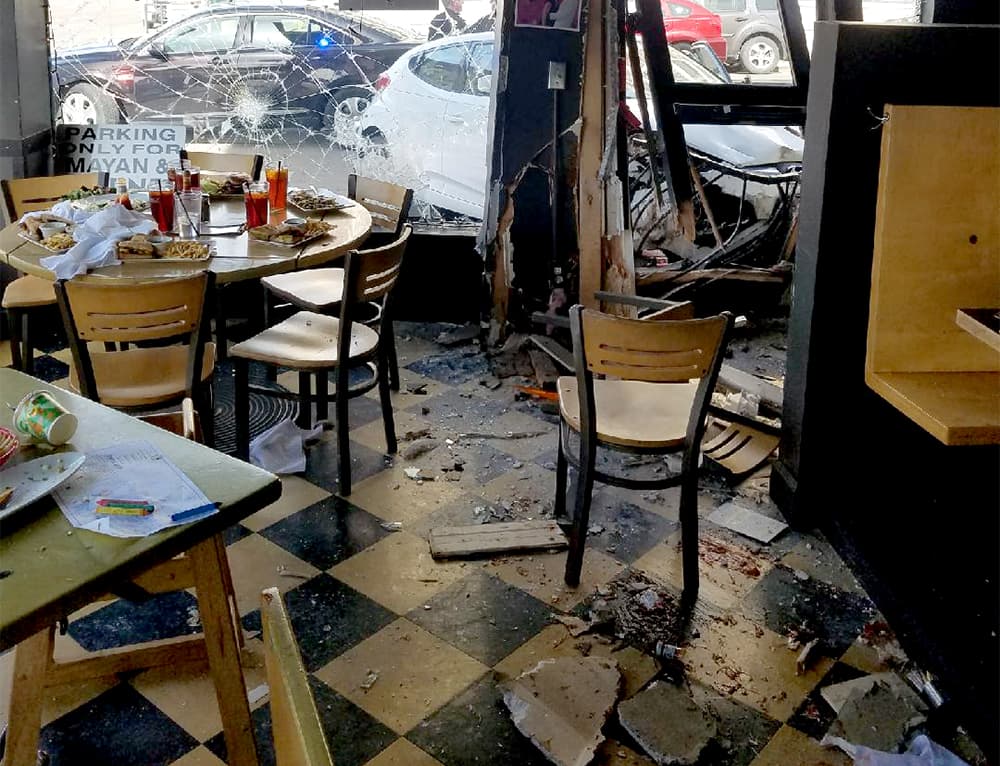
Before the bike lane, 58 percent of bicyclists rode on the sidewalk, 40 percent in the transit lane and 2 percent on the street, according to city data. After, 59 percent used the bikeway, 28 percent rode on the sidewalk, 13 percent used the transit lane and no one rode in the general travel lane.
The physical buffers between the bike lane and traffic could be concrete curbs, planters or plastic posts, according to Price.
The bikeway will change things for people like David Mintzer, who bikes most places and works at Denver Health on Broadway. He would use it, he said, and head to South Broadway shops and restaurants more often.
"I mean, it's huge," Mintzer said. "Trying to cross Speer is such a challenge. So this makes that connection easier to the Cherry Creek Trail. I'd be more inclined to come down this way if I was safe."

